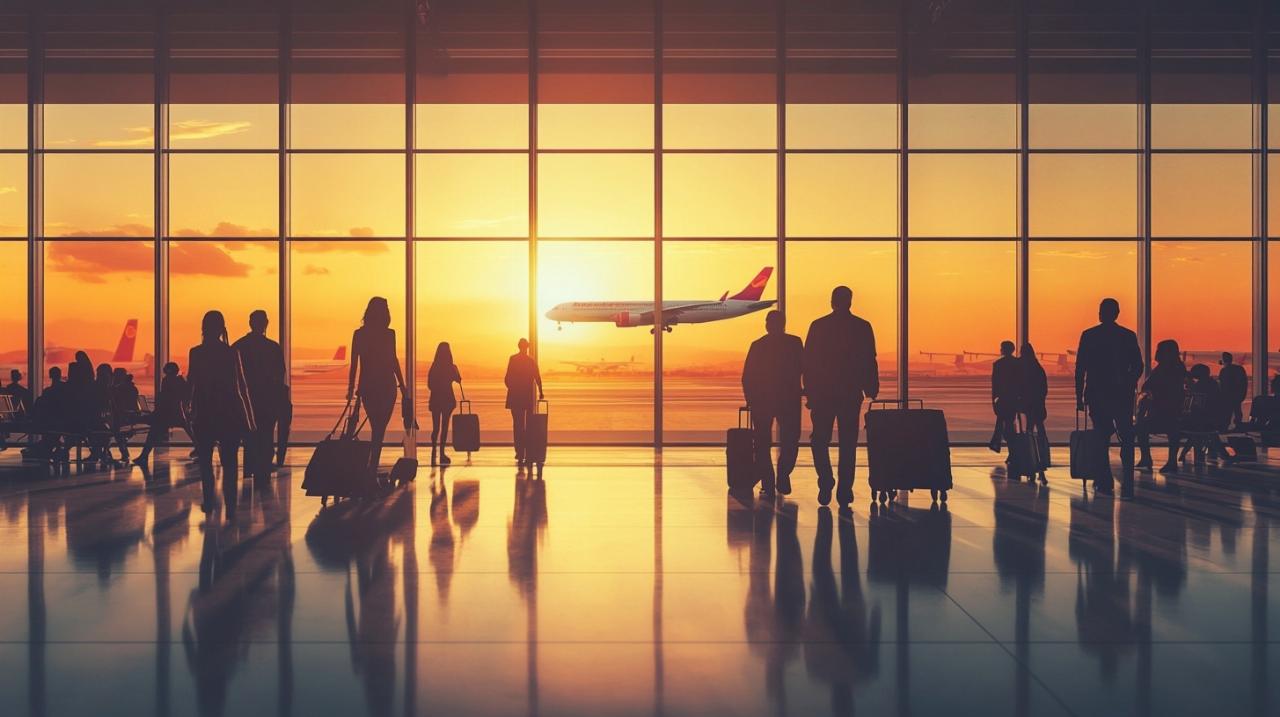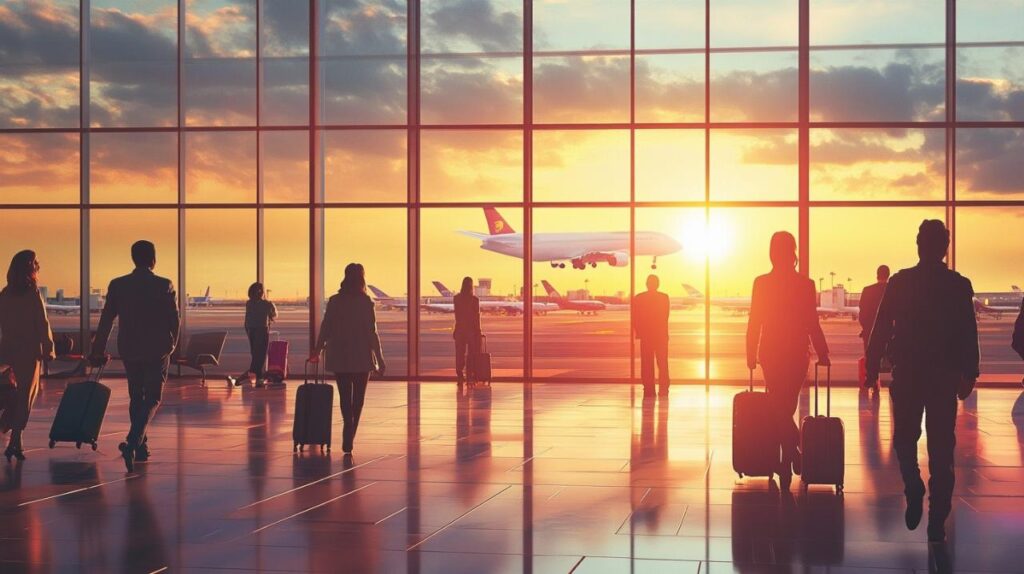Embarking on a journey is an exhilarating experience, but the difference between a stressful trip and a brilliant adventure often comes down to proper preparation. Whether you’re a seasoned globetrotter or planning your first holiday abroad, these essential tips will help ensure your travel experience is as smooth as possible. Let’s dive into the strategies that can transform your next trip from ordinary to extraordinary.
The foundation of any successful journey begins long before you step out the door. A bit of forethought can save you loads of hassle down the line. According to travel experts at https://www.4travelinfo.com/ starting your planning process early is crucial for securing the best options and prices.
Nothing derails travel plans faster than paperwork problems. Ensure your passport has at least six months of validity beyond your return date, as many countries require this for entry. If you’re a UK resident, remember that passport renewals can take around 10 weeks, so sort this well in advance. Research visa requirements thoroughly for each destination and apply with plenty of time to spare. Keep digital copies of all important documents stored securely online and share access with a trusted person back home.
Finding the Best Deals on Transport & Accommodation
Smart booking strategies can significantly reduce your travel expenses. Consider travelling during shoulder seasons when prices drop but weather remains favourable. For flights, booking 2-3 months ahead typically yields the best fares, and comparison tools like Skyscanner can help identify optimal options. When booking accommodation, consider mixing hotels with local rentals for a more authentic experience. Interestingly, prices often drop dramatically just 100 meters away from tourist hotspots, so considering properties slightly off the main drag can save you up to 50% without sacrificing convenience.
Packing strategies for hassle-free travel
The art of packing efficiently can make or break your travel experience. The goal is to bring everything you need while keeping your luggage manageable and organised.
Creating a versatile travel wardrobe
Focus on creating a capsule wardrobe with items that can be mixed and matched to create different outfits. Choose fabrics that resist wrinkles, dry quickly, and layer well for changing weather conditions. Neutral colours provide the most versatility. Rather than bringing your entire wardrobe, remember that most items can be purchased abroad if necessary, allowing you to pack lighter. Compression cubes are brilliant for maximising space and keeping your clothes organised throughout your trip.
Staying connected means bringing the right technology. A universal adapter is crucial for international travel, as outlet types vary widely. Consider a portable power bank to keep devices charged when outlets are scarce. For extended trips, an e-SIM card can provide affordable data in multiple countries. If privacy is a concern, a reliable VPN like ExpressVPN protects your information when using public Wi-Fi networks. Remember to pack spare camera batteries and memory cards to capture every memorable moment.
Keeping your belongings secure
Unfortunately, tourists can be targets for theft in many destinations. Taking precautions with your valuables can prevent major headaches during your travels.
Smart storage solutions for valuables
Experienced travellers recommend operating under the assumption that something might get pinched, which encourages proper precautions. Use hotel safes for items you will not need while exploring. For valuables you carry, consider a money belt worn under clothing or a slash-proof bag. Distribute your funds in different locations rather than keeping everything in one wallet or bag. Always carry a backup credit card and some emergency cash stored separately from your primary wallet. A thin steel cable and lock can secure your luggage to fixed objects in hotel rooms or on trains.
Being vigilant in tourist hotspots
Areas popular with tourists often attract pickpockets. Stay especially alert in crowded places like public transport, markets, and major attractions. Carry your wallet in a front pocket rather than the back where it’s easier to steal. Be wary of common distraction techniques, such as someone spilling something on you or asking for directions while an accomplice targets your belongings. Trust your instincts—if a situation feels uncomfortable, remove yourself promptly.
Staying connected whilst abroad
Maintaining communication capabilities while travelling provides security and convenience, allowing you to navigate unfamiliar territory with confidence. Before departure, check with your current mobile provider about international roaming options and costs. Often, purchasing a local SIM card upon arrival offers the most economical solution for data and calls. For multi-country trips, consider an e-SIM service that allows you to switch between providers without physically changing cards. Remember to notify your mobile provider of your travel dates to prevent service disruptions due to unusual foreign activity on your account.
Finding reliable wi-fi networks
Free Wi-Fi is widely available, but not all networks are created equal. Hotels, cafes, and restaurants typically offer connectivity, though public networks come with security risks. Consider using a VPN for additional protection when accessing sensitive information. Libraries and official tourist information centres often provide reliable, free internet access. Download offline maps and translation tools before your trip to reduce dependency on constant connectivity.
Respecting local customs and making efforts to communicate demonstrates courtesy and often results in warmer welcomes and more authentic experiences.
Researching local customs before arrival
Understanding cultural norms regarding dress, gestures, and behaviour helps avoid unintentional offense. Read about appropriate attire for visiting religious sites and conservative areas. Learn about tipping expectations, which vary dramatically across countries. Research dining etiquette, including when meals are typically eaten and how food is traditionally consumed. Making efforts to respect local traditions shows appreciation for the culture you’re experiencing.
Key Phrases to Learn in the Local Language
While mastering a new language before your trip might be unrealistic, learning a few essential phrases goes a long way. Focus on greetings, please, thank you, excuse me, and basic questions about directions. Locals typically appreciate visitors who make an effort, even if pronunciation isn’t perfect. Language apps can help with real-time translations when more complex communication is needed. Practice pronunciations before arriving to build confidence in your interactions.
Maintaining your health while travelling ensures you can fully enjoy your experiences without interruption from preventable illness or discomfort.
Pack sufficient prescription medications for your entire trip plus a few extra days in case of delays. Carry prescriptions in original packaging with labels and bring a doctor’s note for controlled substances. Stay hydrated, especially on flights and in hot climates, by carrying a reusable water bottle that you can refill from safe sources. In areas with questionable water quality, stick to bottled water and avoid ice in drinks. Don’t forget basic over-the-counter medicines for common issues like headaches, stomach troubles, and allergies.
Food safety in unfamiliar territories
Food-related illness can quickly derail travel plans. Seek out eateries frequented by locals rather than tourist-oriented restaurants, as they often offer better quality at lower prices. Street food can provide authentic flavours and experiences, but observe if locals are eating there and whether food is cooked to order. Be prepared for potential digestive adjustment periods when trying new cuisines. In some destinations, it’s wise to plan accommodation with easy bathroom access for the first couple of days while your system adapts.
Managing your important information
Organising and protecting your crucial travel information provides peace of mind and quick solutions if problems arise.
Document backup strategies
Create digital copies of all essential documents, including your passport, visas, insurance details, booking confirmations, and identification. Store these in a password-protected cloud service accessible from any device with internet connectivity. Additionally, keep physical photocopies separate from the originals in your luggage. Include contact information for your country’s embassy or consulate at your destination. Carry spare passport photos which can expedite replacement if your passport is lost or stolen.
Notifying financial institutions of your travel plans
Inform your bank and credit card companies about your travel dates and destinations before departure. This prevents your cards from being flagged for suspicious activity and potentially blocked when you need them most. Understand foreign transaction fees and consider obtaining cards specifically designed for international travel with minimal or no overseas charges. Set up mobile banking apps and ensure you know how to contact your financial institutions from abroad in case of emergencies.
Embracing the travel experience
Beyond logistics and safety concerns lies the true purpose of travel: meaningful experiences and personal growth through exposure to new places and perspectives.
Maintaining flexibility in your itinerary
While planning provides structure, leaving room for spontaneity often leads to the most memorable experiences. Consider booking only your first few nights of accommodation, allowing flexibility to extend stays in places you love or move on from those that don’t meet expectations. Build buffer days into your schedule to accommodate unexpected opportunities or transportation delays. Remember that sometimes the best experiences come from deviations from your original plan.
Immersing yourself in local experiences
Venture beyond tourist areas to discover authentic local culture. Wake up early to observe daily routines and experience popular sites before crowds arrive. Participate in free walking tours led by locals to gain insider perspectives. Consider volunteering for community projects to connect meaningfully with the destination. Get intentionally lost in safe areas to discover hidden gems not mentioned in guidebooks. Most importantly, approach your travels with an open mind and willingness to step outside your comfort zone.
Travel provides unparalleled opportunities for discovery and personal growth. By implementing these practical strategies while maintaining a spirit of adventure and flexibility, you’ll be well-equipped to navigate challenges and fully embrace the joys of exploring our fascinating world. Happy travels!

